Over my forty years at InterVarsity Press I crossed paths with J. I. Packer a number of times. This soft-spoken and steady British theologian, who died this past week, became something of an accidental celebrity when his substantive book Knowing God suddenly became a best seller. When, as a newly minted InterVarsity campus staff member in 1973, I learned that IVP sometimes gave free books to staff, I made sure they knew that’s the book I wanted. I drank it in.
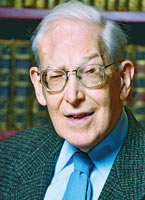 Once I recall him talking about his concise writing style. “Packer by name; packer by trade,” he responded. I could tell he enjoyed saying that, and I got the impression he used the line often.
Once I recall him talking about his concise writing style. “Packer by name; packer by trade,” he responded. I could tell he enjoyed saying that, and I got the impression he used the line often.
On another occasion Jim reprimanded me and IVP for dropping the dedication to his wife in our latest printing of Knowing God. I assured him that wasn’t possible. He assured me it was. He was right. I checked, and somehow it had been dropped. We fixed it next printing.
I introduced him two times when he was a speaker, and once ran him on an errand for cookies for the group of Regent students he was hosting. I was impressed by how he took personal responsibility to make sure his students were treated with genuine hospitality.
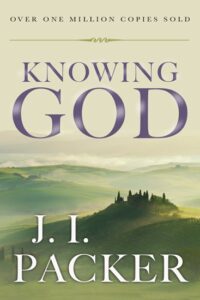 Once several of us took him to lunch, and as we ate IVP publisher Bob Fryling posed the question, “How would you describe IVP among the many Christian publishers that are around?”
Once several of us took him to lunch, and as we ate IVP publisher Bob Fryling posed the question, “How would you describe IVP among the many Christian publishers that are around?”
Immediately Jim responded, “Some publishers tell you what you should believe. Other publishers tell you what you already believe. But IVP helps you to believe.” We were amazed at the instantaneous response, but he took it as par for the course that he could spout off such aphorisms on demand, and gladly gave us permission to use the line publicly.
Perhaps my most memorable encounter was when I got a glimpse into his humanity. At a conference I was assigned the task of chauffeuring him and another famous author. As these two good friends talked in the back seat, they began sharing intimate updates on their similar experiences of grief and difficulty—all as if I were not there. I never forgot that no matter how elevated we might be, we are not immune to life.
And I never forgot the joy and good humor Jim always exhibited in every circumstance.

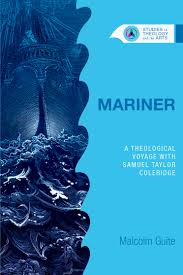
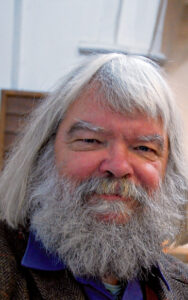 Such was the power of Coleridge’s personality and intellect that even in the midst of his deep struggles he reshaped the way the world saw Shakespeare in a series of landmark lectures. Previously the Bard was viewed as a second-tier talent of popular leanings. After Coleridge we know him to be the premier wielder of not only the English language but of art and life.
Such was the power of Coleridge’s personality and intellect that even in the midst of his deep struggles he reshaped the way the world saw Shakespeare in a series of landmark lectures. Previously the Bard was viewed as a second-tier talent of popular leanings. After Coleridge we know him to be the premier wielder of not only the English language but of art and life. 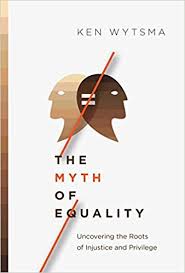
 Does all this have anything to do with the gospel? Wytsma quotes Timothy Keller: “Any neglect shown to the needs of the members of the vulnerable is not called merely a lack of mercy or charity, but a violation of justice.” Biblical justice is not just punishing evil doers but restoring what was bent or broken. The cross doesn’t just allow sins to be forgiven but restores relationships. It reconciles us to God and us to each other.
Does all this have anything to do with the gospel? Wytsma quotes Timothy Keller: “Any neglect shown to the needs of the members of the vulnerable is not called merely a lack of mercy or charity, but a violation of justice.” Biblical justice is not just punishing evil doers but restoring what was bent or broken. The cross doesn’t just allow sins to be forgiven but restores relationships. It reconciles us to God and us to each other.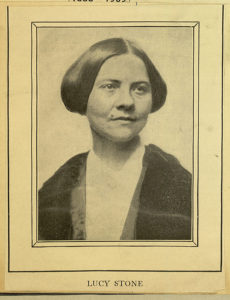 Lucy Stone launched the women’s rights movement in 1851, inspiring thousands to join the cause for women’s right to vote, work, receive an education, and own property. Susan B. Anthony and Elizabeth Cady Stanton were among her early followers. But after years of leading together, in 1869 Anthony and Stanton split from Stone, nearly causing the collapse of the movement. What happened?
Lucy Stone launched the women’s rights movement in 1851, inspiring thousands to join the cause for women’s right to vote, work, receive an education, and own property. Susan B. Anthony and Elizabeth Cady Stanton were among her early followers. But after years of leading together, in 1869 Anthony and Stanton split from Stone, nearly causing the collapse of the movement. What happened?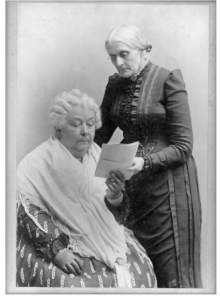 Anthony and Stanton were scandalized. But their differences didn’t stop there. “Stone was committed to campaigning at the state level; Anthony and Stanton wanted a federal constitutional amendment. Stone involved men in her organization; Anthony and Stanton favored an exclusively female membership. Stone sought to inspire change through speaking and meetings; Anthony and Stanton were more confrontational, with Anthony voting illegally and encouraging other women to follow suit.” (121)
Anthony and Stanton were scandalized. But their differences didn’t stop there. “Stone was committed to campaigning at the state level; Anthony and Stanton wanted a federal constitutional amendment. Stone involved men in her organization; Anthony and Stanton favored an exclusively female membership. Stone sought to inspire change through speaking and meetings; Anthony and Stanton were more confrontational, with Anthony voting illegally and encouraging other women to follow suit.” (121)
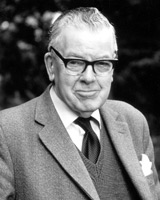
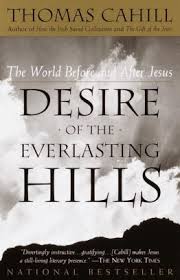
 What of the initial question that inspired the book? He only hints at answers. Certainly the crucified image of the righteous sufferer has remained strong, inspiring many to follow his example even at great risk. Also, it is hard to imagine the Bill of Rights and the United Nations Universal Declaration of Human Rights emerging without the widespread influence of Jesus. “The pressure to make peace [in various quarters of today’s world] is quite unlike anything the Greeks or Romans or even the Elizabethans could have imagined” (310).
What of the initial question that inspired the book? He only hints at answers. Certainly the crucified image of the righteous sufferer has remained strong, inspiring many to follow his example even at great risk. Also, it is hard to imagine the Bill of Rights and the United Nations Universal Declaration of Human Rights emerging without the widespread influence of Jesus. “The pressure to make peace [in various quarters of today’s world] is quite unlike anything the Greeks or Romans or even the Elizabethans could have imagined” (310).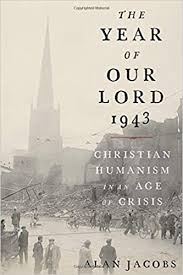
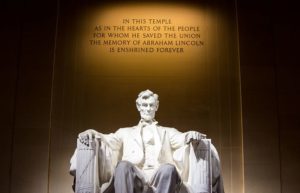 The unwritten agenda of this book and its relevance for today seems to be the similar questions that are now afoot. Does democracy have a future? Can it withstand the impulses of our now hyper technological society joined with the forces of nationalism which once more assert themselves–now in currently democratic societies like Great Britain, India, the United States and elsewhere? What role if any does Christianity have to play other than chaplain to the powers or hand-wringing bystander?
The unwritten agenda of this book and its relevance for today seems to be the similar questions that are now afoot. Does democracy have a future? Can it withstand the impulses of our now hyper technological society joined with the forces of nationalism which once more assert themselves–now in currently democratic societies like Great Britain, India, the United States and elsewhere? What role if any does Christianity have to play other than chaplain to the powers or hand-wringing bystander?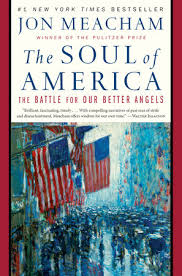 Civil War to end slavery was one such struggle. But the battle continued on new fronts, the rise of the Ku Klux Klan in the late nineteenth and early twentieth centuries being one of the most obvious. The decades-long, hard fought struggle to gain women the vote in 1920 was another high point except that it took so much effort to achieve what now seems so obvious.
Civil War to end slavery was one such struggle. But the battle continued on new fronts, the rise of the Ku Klux Klan in the late nineteenth and early twentieth centuries being one of the most obvious. The decades-long, hard fought struggle to gain women the vote in 1920 was another high point except that it took so much effort to achieve what now seems so obvious.